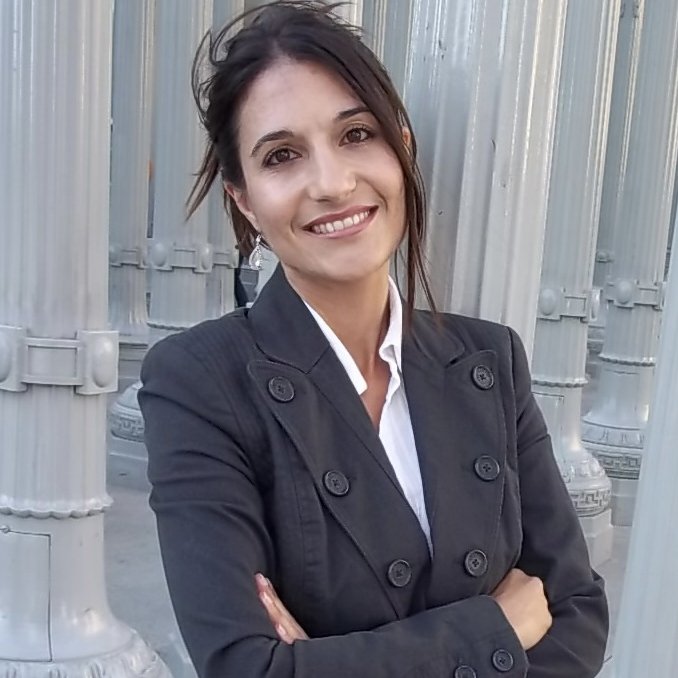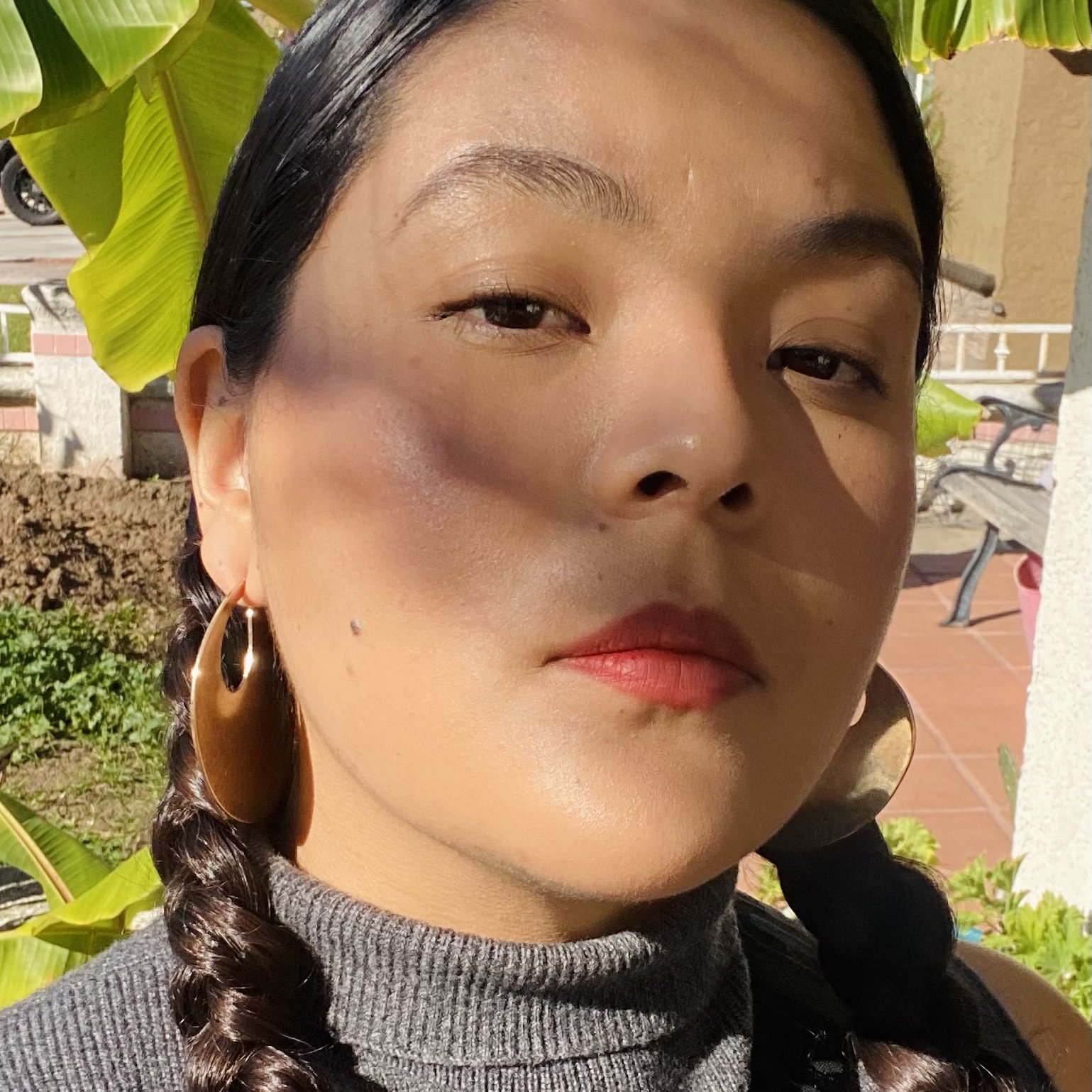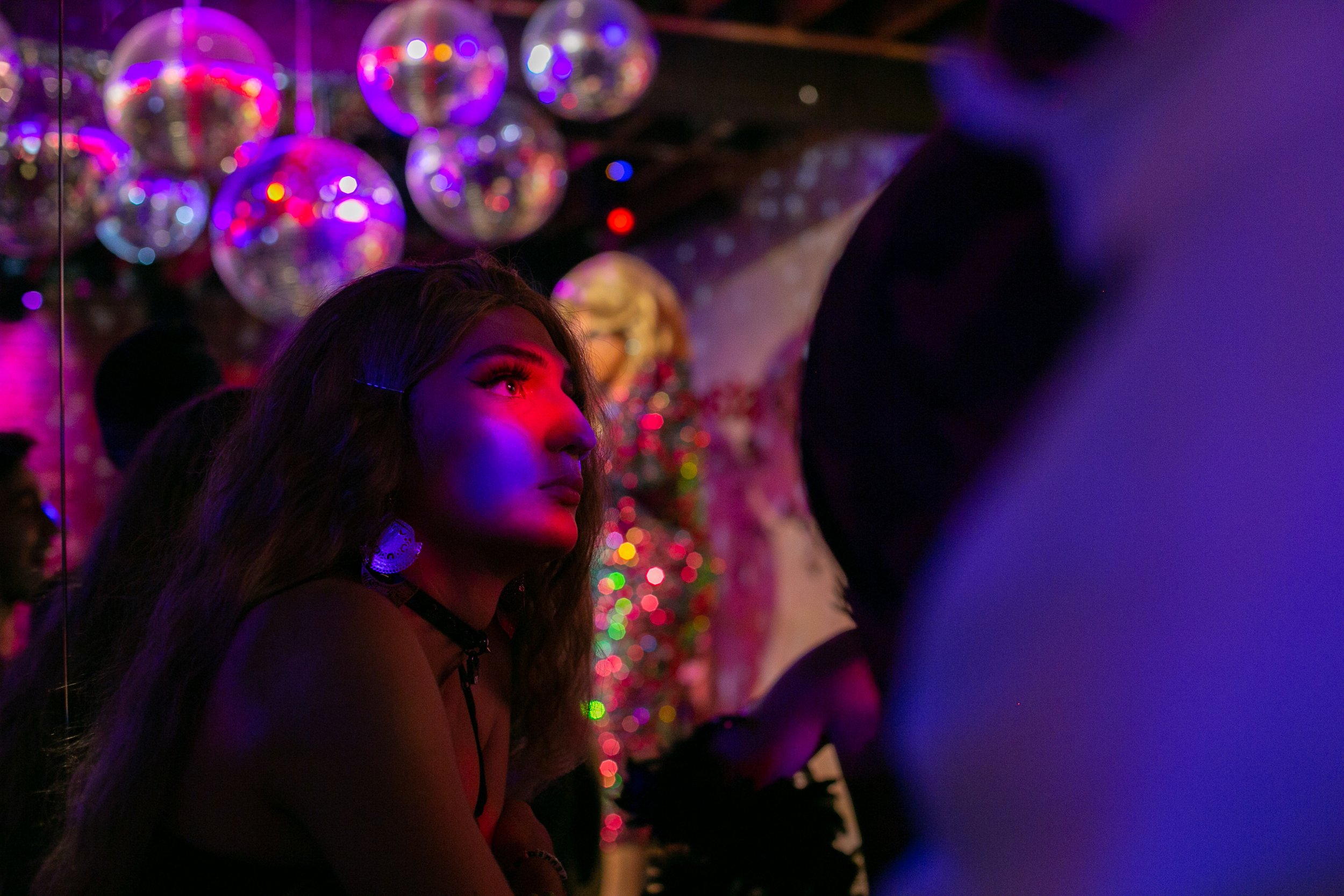Trans in High School
Violeta Acuña, 17, is a student at the Chino public charter school Options for Youth. Photo by Julie Leopo for palabra
High schools that treat trans teenagers with respect and care provide essential emotional and academic support, and help these students develop self-confidence and thrive
On a sunny April afternoon in Chino, Calif., 17-year-old high-school senior Violeta Acuña and her teacher, Ernest Liberati, go over today’s school assignment. Dressed in a tight black mini skirt accented by black platform sandals, Violeta styles her long, dark curly hair as they chat. Liberati endearingly calls Violeta an “academic diva”: She’s a joyful, dedicated transgender student whose academic performance Liberati says went from average to “more of an explosion” since she began her gender transition journey last year.
Violeta’s small charter school, Options for Youth, is trans-welcoming and offers an independent curriculum for any student who has struggled in traditional schools. Not all of California’s LGBTQ+ students, however, enjoy friendly school environments, despite the Golden State’s robust legislation that provides legal protections for trans minors fleeing states that have banned or criminalized access to gender-affirming care.
‘Schools are sometimes the only place for a trans, LGBTQ+ student, or non-binary student to feel safe — to feel like this is a space to even experiment sharing their identity.’
In fact, school is not a safe space for most LGBTQ+ California secondary school students, according to a 2021 state-by-state survey by the queer education advocacy organization GLSEN. Many of the students reported their schools were hostile environments: 49% of LGBTQ+ students surveyed regularly heard school staff make homophobic remarks, and 67% heard negative remarks about someone’s gender expression.
She begins her school day by setting up her laptop and checking in with her teacher, Ernest Liberati, on pending assignments. Photo by Julie Leopo for palabra
Trans teens like Violeta need care and nurturing at school, experts say. “Schools are sometimes the only place for a trans, LGBTQ+ student, or non-binary student to feel safe — to feel like this is a space to even experiment sharing their identity,” says Jorge Reyes Salinas, communications director of Equality California, a statewide LGBTQ+ civil rights organization.
California’s statewide trans-friendly policies stand in stark contrast with the 556 anti-trans bills introduced in states across the country in 2023 alone, some of which would deny gender-affirming health care. Others would force trans kids to detransition or use the bathrooms of the gender they were assigned at birth (rather than their true gender), have teachers report pronoun changes to parents, and forbid schools from using trans students’ preferred pronouns.
But the rights LGBTQ+ students have in California vary greatly among the state’s school districts, Reyes Salinas says, and some majority conservative or far-right school boards create their own anti-trans and anti-LGBTQ+ policies, even in areas with strong pro-trans rights support.
In response, California Democrat Assemblymember Rick Chavez Zbur is sponsoring AB 5, a state bill which would require teachers and school staff statewide to undergo LGBTQ+ cultural competency training at least every three years.
Such training is essential for teens like Violeta, says Theodore Burnes, professor of clinical education at the University of Southern California. Trans teens “who receive support in a variety of different ways tend to thrive more in school,” he says. That can include teachers using students’ preferred names and pronouns, providing students with trans role models and curricula with trans representation, and being educated about bullying prevention.
Putting on makeup, she credits her skills to videos she finds on TikTok. Photo by Julie Leopo for palabra
Despite her comfortable school experience at Options for Youth, Violeta knows firsthand what an intolerant school environment looks like. She attended larger elementary and middle schools where other kids bullied her because of her femininity, calling her homophobic slurs. Meanwhile, she was silently experiencing gender dysphoria — the feeling that one’s true gender does not match the gender one was assigned at birth. As she got older, Violeta also struggled with anxiety, depression, and the aftermath of sexual abuse.
After Violeta attempted suicide in 2021, she and her mother, who declined to be interviewed but consented to Violeta doing so, decided that the teen needed help from a 45-day residential therapy program. Violeta insists on being public about this: “I know that I’m not the only individual who struggles with mental health issues,” she says. Although she had known she was a girl since she was 13, it was not until she was in the residential program at age 16 that she felt safe enough to come out to her mom.
Although divorced, Violeta’s religious parents, who were born in Mexico, have been less than accepting. This has made life harder for Violeta. They insist on referring to her as “he” or “him,” and refuse to call her Violeta, instead deadnaming her —calling her by the male name they gave her at birth. As painful as this is for Violeta, she’s learned to live with it. “I've told (my mom) how it makes me feel,” Violeta says. “She kind of just laughed at it. Like, ‘haha, it’s hurting you.’” But Violeta’s oldest sister and a close cousin are very supportive of her transness, and she says that means more than her mom’s rejection.
Liberati’s class size for the day is fewer than 10 students. Photo by Julie Leopo for palabra
A year ago, Violeta’s mother finally authorized hormonal treatment for her daughter. Part of what convinced her mom, Violeta says, was listening to a gender specialist physician explain that, as Violeta developed a more feminine appearance from the hormones, “the risk of me experiencing hate crimes would go down.”
When Violeta returned to high school after the residential therapy program, she began her social transition, introducing herself to her teachers and classmates with her new name and she/her pronouns. All Violeta found was acceptance. “Once I explained it,” she says, “everyone was really understanding.”
Liberati describes the changes he’s noticed in Violeta since she started transitioning: Not only has her academic performance significantly improved, but she’s developed a playful, outgoing personality. In turn, Liberati has become a father figure since she came out as Violeta.
Liberati, whose first openly transgender student a few years ago had a tougher time in a larger school setting, believes that this intimate school environment allows students like Violeta to feel welcome and respected, and to thrive academically. Experts agree. A smaller setting “would probably be an ideal environment” for trans teens, says Burnes, the professor at USC’s Rossier School of Education.
A key aspect of the school’s program is to involve students in activities so that they “don’t feel outcasted,” Liberati explains. Violeta is part of the student council, which fosters team and community building and student cooperation beyond the academic environment by encouraging participation in field trips and organizing school events such as Taco Truck Day.
Liberati says that Options for Youth’s flexible academic structure, which customizes the academic workload according to each student’s specific needs and goals, gives students the freedom to discover their talents and abilities, allowing them to focus on the subjects they most enjoy. For Violeta, these subjects are psychology and, because of her interests in dance and theater, the arts. Liberati says Violeta is passionate, adding “a little spice” to everything she does, and loves attention.
Waiting for her turn to perform at the drag show Battle Babies in West Hollywood, April 12, 2023. Photo by Julie Leopo for palabra
Violeta will graduate this year. In the absence of support from her parents, having the support of Liberati, other teachers and her fellow students has been crucial to both her academic success and emotional wellbeing.
The support she has received at her high school — compared to the ostracization and bullying in the years before — has infused Violeta with self-confidence to try new experiences, even those that require her to be vulnerable and openly herself. As the fight for trans rights rages across the country, Violeta has become passionate about a new hobby: performing as a drag queen.
Performing to Nicki Minaj's music at the drag show Battle Babies in West Hollywood, April 12, 2023. In the crowd were Violeta’s friends, who drove for more than an hour to watch her. Photo by Julie Leopo for palabra
When she first started watching drag shows, Violeta says, “I remember I was like, ‘Oh my God,’” she says, “‘This is what's missing (from my life).’” A few weeks ago, Violeta put on a bandana-print dress, applied makeup and headed for a night out in West Hollywood. On the stage, she danced for the crowd and lip-synced to a mix of Destiny’s Child, Nicki Minaj, and Rihanna.
Although Violeta didn’t win the competition for drag queen of the night, she is nothing but excited about all she has to learn — onstage and, hopefully, at a community college in the future. Both the drag community and her school community have taught her that she deserves to be welcomed as her true self.
—
Aitana Vargas is a Columbia University graduate and an award-winning on-camera news reporter, foreign correspondent and live tennis commentator based in Los Angeles. She began her career anchoring a local Spanish-language TV show while obtaining her BS in Physics from Berry College and then interned at the BBC, CNN International and the NASA/ESA Hubble Space Telescope Communications Department in Germany. Her Master’s thesis on the Israeli-Palestinian conflict at Columbia University was supervised by Professor Rashid Khalidi. Her stories have appeared on Público, EFE, CNN Expansión, Narratively, Hoy Los Ángeles, the LA Times, DirecTV Sports, TVE Internacional, Cuatro/Telecinco TV Network, HITN TV Network and others. She’s received several LA Press Club awards (Investigative Series, Sports Journalist of the Year, Obituary, Consumer, Sports & Hard News), the 2018 Berry College Outstanding Young Alumni Award and is a Livingston Award finalist. Aitana was also the Spanish-English interpreter for transgender artist Daniela Vega, lead actress in Academy Award-winning film "A Fantastic Woman." Learn more about her at aitanavargas.com
Julie Leopo is a California-based award-winning photojournalist who explores culture, politics, identity, and social issues and has a passion for amplifying the stories of bicultural and bilingual communities through her photography. In 2021, Latino Journalists of California, CCNMA named Julie one of “California’s Most Influential Latina Journalists,” and in 2022 she was a runner up for the prestigious Ruben Salazar Journalism Award for her reporting on the Oxnard beach community.
Lygia Navarro is an award-winning disabled journalist working in narrative audio and print. She has reported from across Latin America, as well as on Latine stories in the United States and Europe. Lygia has reported for The American Prospect, Business Insider, Marketplace, The World, Latino USA, the Virginia Quarterly Review, the Christian Science Monitor, The Associated Press, and Afar, among other outlets. She has also worked as a podcast producer, and her work has been supported by many grants and fellowships, including, most recently, the Journalism & Women Symposium.












